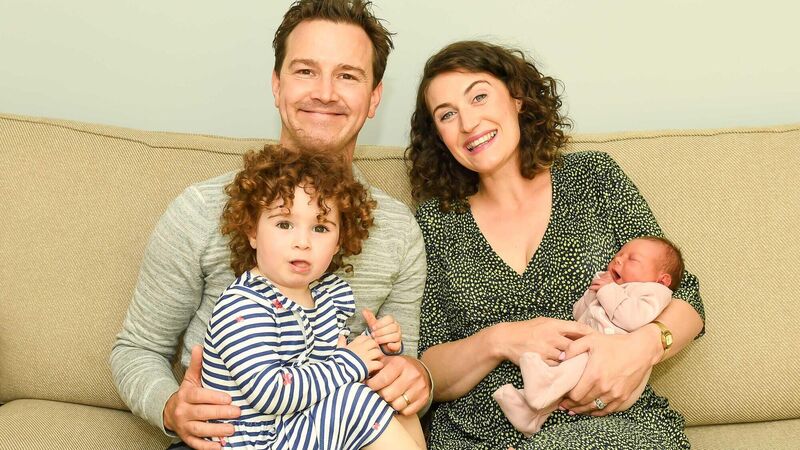Nearly 50 women give birth by roadside in two years

Gearóid and Ruth Hally with their daughters Mai, 2, and one day old Jo, at their home on Boreenmanna Road, Cork, in August 2021. Picture: David Keane
At least 49 women gave birth on the road during the last two years with help from ambulance paramedics, new figures show.
Data provided by the National Ambulance Service shows at least 19 women gave birth by the side of a road or motorway by the end of November.










